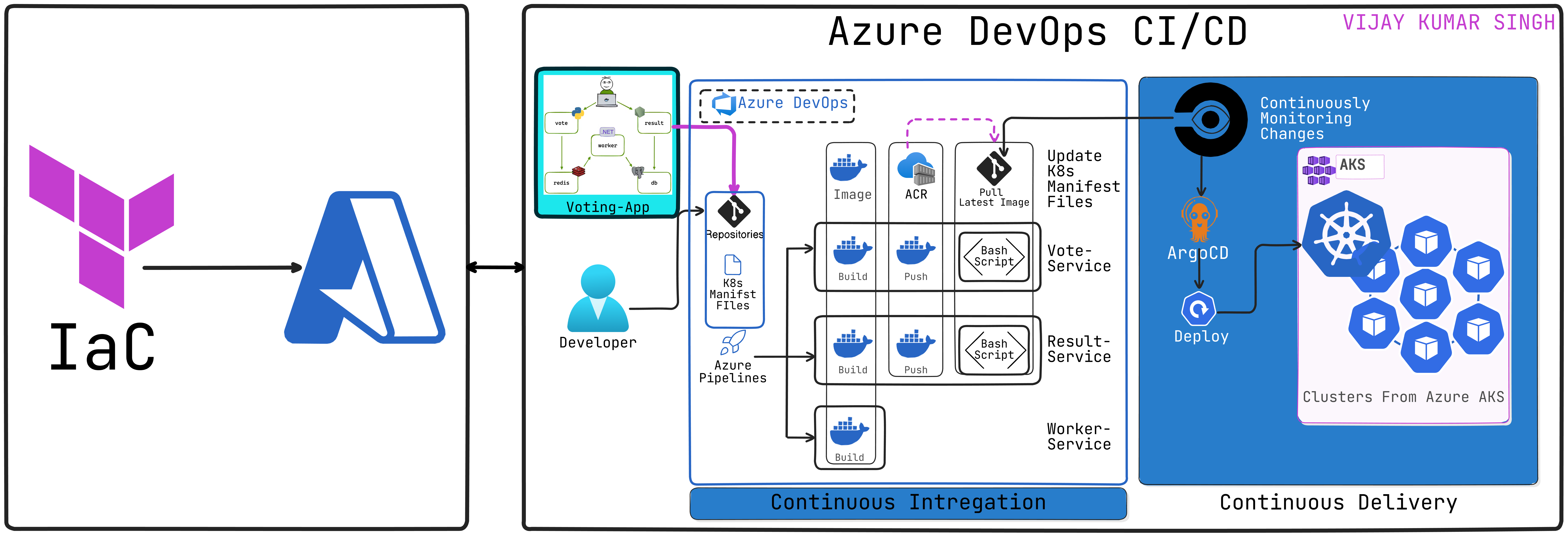Project Overview #
Implemented a comprehensive CI/CD pipeline for a voting application using Azure DevOps. The project demonstrates a complete DevOps lifecycle from code commit to deployment in multiple environments. The architecture includes a frontend voting interface built with React, a backend API for processing votes, Redis for caching, and PostgreSQL for persistent storage. The solution showcases how to automate builds, tests, and deployments while maintaining security and reliability throughout the pipeline.
Architecture #

Hands-On Experience #
- Designed and implemented end-to-end CI/CD pipelines using Azure DevOps, ArgoCD
- Created infrastructure as code using Terraform to provision Azure resources
- Containerized the application components using Docker and orchestrated with AKS
- Integrated automated testing including unit tests
- Set up monitoring and alerting for the application and infrastructure
- Configured security scanning for container images and application code
- Established automated rollback mechanisms for deployment failures
- Implemented secret management for sensitive configuration data
- Designed resource optimization strategies for cost efficiency
Tech Stack #
- CI/CD Platform: Azure DevOps, ArgoCD
- Infrastructure: Terraform, Azure (AKS, ACR, Key Vault)
- Containerization: Docker
- Orchestration: Azure Kubernetes Service (AKS)
- Monitoring: Azure Monitor, Application Insights
Project Links #
CI/CD pipeline for Microservices using Azure DevOps and ArgoCD to deploy microservices. The pipeline handles building and pushing Docker images to Azure Container Registry and deploying them to a Kubernetes cluster managed by ArgoCD.
Blog Post

